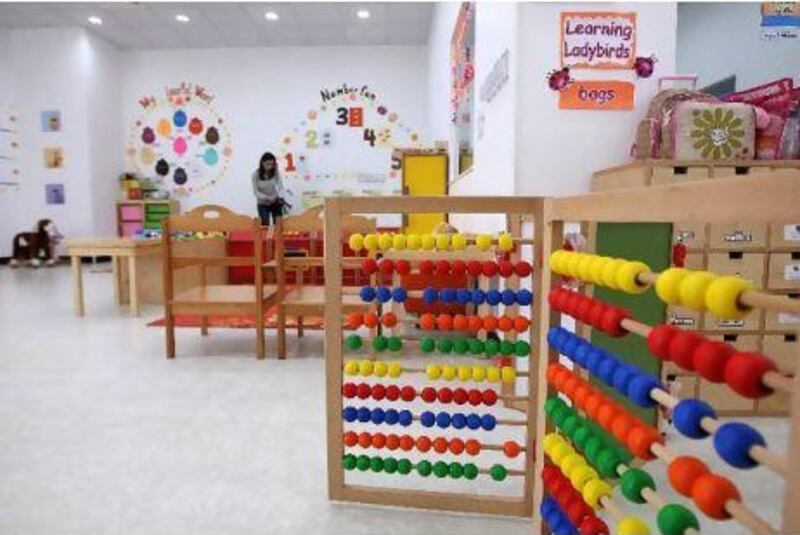DUBAI //The emirate needs more public nursery schools and more funding for early-childhood education, according to a report that education officials will present today to the Dubai School of Government.
It is estimated that only 0.1 per cent of the country's GDP is spent on early-childhood education and care.
"With low state expenditure and few requirements placed on early learning providers, both quality and equity may be weak," wrote Juman Karaman, head of projects at the Knowledge and Human Development Authority, in her policy brief that will be presented at today's forum.
Less than two per cent of nurseries and 10.2 per cent of kindergartens in the emirate are funded by Government, according to a study commissioned by the development authority.
The study, titled Early Childhood Education in Dubai, was led by Dr John Bennett, a former educationspecialist for the UN Educational, Scientific and Cultural Organisation (Unesco).
The majority of the research was conducted between 2009 and 2010. Several other government departments gave their support to the research process.
The presentation will largely be based on Dr Bennett's findings.
According to the study, Dubai lacks the variety of government-provided early childhood education services that other countries provide: family day-care homes, drop-in services, parent support groups for stay-at-home mothers, play groups and family centres.
In the past 15 years, only five public nursery schools have been set up in Dubai, and there are only around 27 in the country.
In the private sector, there were 82 licensed nurseries catering to 7,551 children in 2009.
By contrast, only two public nursery schools were established in the same period, catering to 43 children.
Additionally, there is no regulation of education standards in private nurseries, which are the only option for most parents who choose to pursue formal early childhood education.
The development authority's study found that the majority of staff at these nurseries do not have a post-secondary level qualification for teaching.
About 26 per cent of teachers in Dubai's nurseries were found to have only a high school diploma, while 18.5 per cent had not even finished high school.
Moza al Shoomi,director of the Child Department at the Ministry of Social Affairs, said the department was actively promoting formal education, even for children below the age of 3.
European models predominate:
Most private nursery schools in the UAE follow methods developed in Europe. These models of early childhood education are mostly focused on allowing children to explore their own capabilities. Here are three of examples of curricula:
The Montessori Method
Based on the ideas of Italian scientist Maria Montessori, this style focuses on teaching children a range of problem-solving skills.
The Reggio Emilia Approach
This one is based on the belief that children should have some control over the direction of their own learning. Parents play an important part in the Reggio philosophy, which was developed for that Italian municipality’s public school system in the years after World War II.
Waldorf Education
This was conceived by Austrian philosopher Rudolf Steiner who founded the Anthroposophy movement. The technique uses play to teach kids the values of a peaceful and just society.
Public nurseries in the UAE tend to follow one of the European-based education programmes, but localise the content by adding Arabic language components.
* Afshan Ahmed






